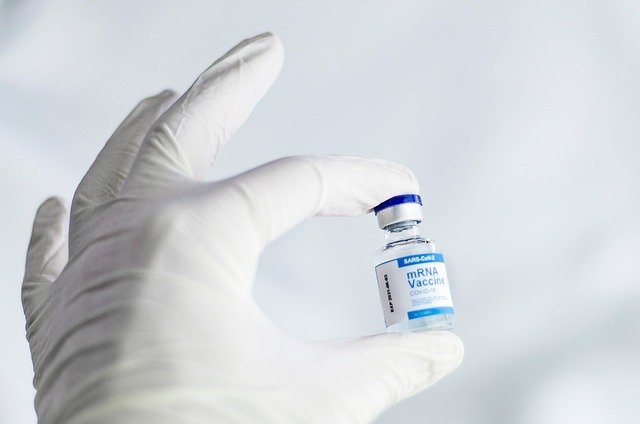Innovative Cellular Immunotherapy Approaches for Multiple Myeloma
Multiple myeloma, a complex and often challenging cancer of the blood, has seen significant advancements in treatment options in recent years. Innovative cellular immunotherapy approaches have emerged as promising avenues for managing this disease, offering new hope to patients. These cutting-edge therapies harness the body’s immune system to target and destroy cancer cells more effectively.

Multiple myeloma represents one of the most challenging hematologic malignancies, but recent breakthroughs in cellular immunotherapy have revolutionized treatment possibilities. These innovative approaches work by enhancing the body’s natural immune response against cancer cells, offering targeted solutions that minimize damage to healthy tissue while maximizing therapeutic effectiveness.
What is Chimeric Antigen Receptor (CAR) T-Cell Therapy?
CAR T-cell therapy represents a groundbreaking approach where patient T-cells are genetically modified to recognize and attack myeloma cells. This personalized treatment involves extracting T-cells from the patient, engineering them in laboratory settings to express chimeric antigen receptors, and reinfusing them back into the patient. The modified cells can then identify specific proteins on myeloma cells, such as BCMA (B-cell maturation antigen), leading to targeted cancer cell destruction. Clinical trials have shown remarkable response rates, with some patients achieving complete remission even after conventional treatments failed.
How Do Bispecific T-Cell Engagers (BiTEs) Work?
Bispecific T-cell engagers function as molecular bridges, simultaneously binding to T-cells and myeloma cells to facilitate immune recognition. These engineered proteins contain two binding domains: one that attaches to CD3 receptors on T-cells and another that targets specific antigens on myeloma cells. This dual binding mechanism brings T-cells into direct contact with cancer cells, triggering immediate immune activation and tumor cell elimination. BiTEs offer advantages over traditional therapies because they can redirect any T-cell in the patient’s body to attack myeloma cells, regardless of the T-cell’s original specificity.
Understanding Monoclonal Antibodies in Myeloma Treatment
Monoclonal antibodies represent precision-targeted therapies designed to recognize specific proteins expressed on myeloma cell surfaces. These laboratory-produced antibodies can work through multiple mechanisms, including direct cell killing, immune system activation, and delivery of toxic substances directly to cancer cells. Daratumumab, targeting CD38, and elotuzumab, targeting SLAMF7, exemplify successful monoclonal antibody treatments. These therapies can be used alone or combined with other treatments, offering flexibility in treatment planning and improved outcomes for patients with varying disease characteristics.
Role of Immune Checkpoint Inhibitors
Immune checkpoint inhibitors work by removing natural brakes on the immune system, allowing T-cells to maintain their anti-cancer activity for extended periods. In multiple myeloma, these drugs target proteins like PD-1, PD-L1, and CTLA-4 that normally prevent excessive immune responses. By blocking these checkpoint proteins, the treatments enable sustained immune surveillance and attack against myeloma cells. While showing promise in clinical trials, checkpoint inhibitors in myeloma treatment require careful patient selection and monitoring due to potential autoimmune side effects.
Combination Therapies: Maximizing Treatment Effectiveness
Combination approaches represent the future of myeloma treatment, integrating multiple immunotherapy modalities with conventional treatments like chemotherapy and targeted drugs. These strategies aim to attack cancer cells through different mechanisms simultaneously, reducing the likelihood of resistance development. Successful combinations might include monoclonal antibodies with immunomodulatory drugs, or CAR T-cells followed by checkpoint inhibitors to maintain long-term immune memory. Clinical research continues exploring optimal sequencing and dosing of these combinations to maximize benefits while minimizing toxicity.
| Treatment Type | Key Providers | Estimated Cost Range | Availability |
|---|---|---|---|
| CAR T-Cell Therapy | Novartis, Bristol Myers Squibb | $400,000 - $500,000 | FDA-approved centers |
| BiTE Therapy | Amgen | $150,000 - $250,000 annually | Clinical trials/approval |
| Monoclonal Antibodies | Johnson & Johnson, Bristol Myers Squibb | $100,000 - $200,000 annually | Widely available |
| Checkpoint Inhibitors | Merck, Bristol Myers Squibb | $120,000 - $180,000 annually | Research settings |
Prices, rates, or cost estimates mentioned in this article are based on the latest available information but may change over time. Independent research is advised before making financial decisions.
The integration of these innovative cellular immunotherapy approaches has fundamentally transformed multiple myeloma treatment landscapes. Patients now have access to personalized therapies that can achieve deeper remissions and potentially longer survival than ever before. As research continues advancing, the combination of these approaches promises even greater therapeutic potential, offering hope for improved quality of life and extended survival for multiple myeloma patients worldwide.
This article is for informational purposes only and should not be considered medical advice. Please consult a qualified healthcare professional for personalized guidance and treatment.




